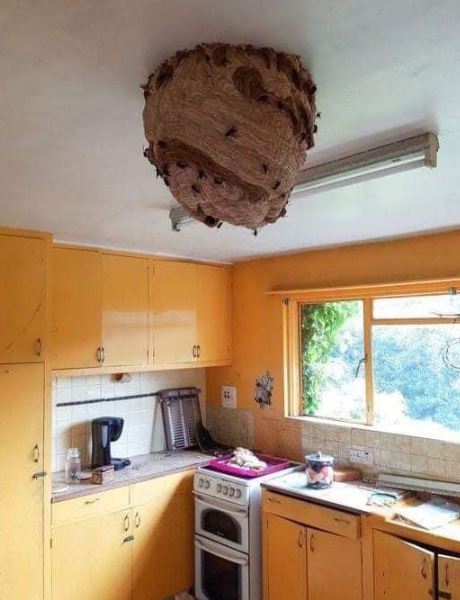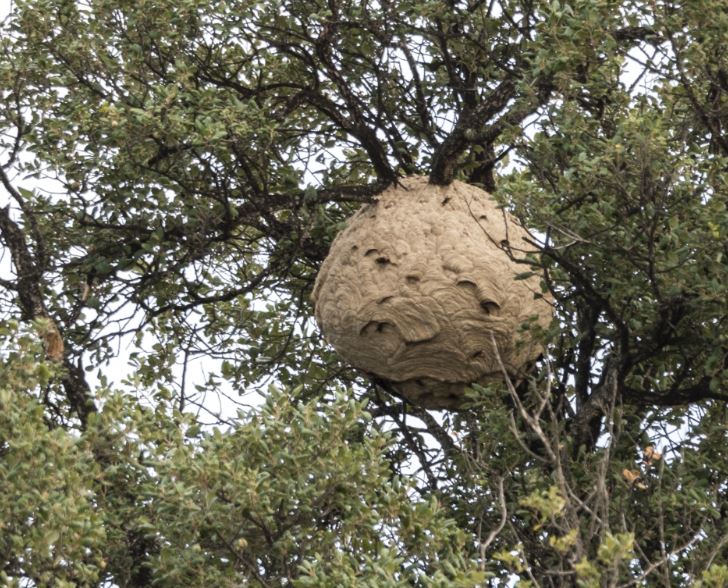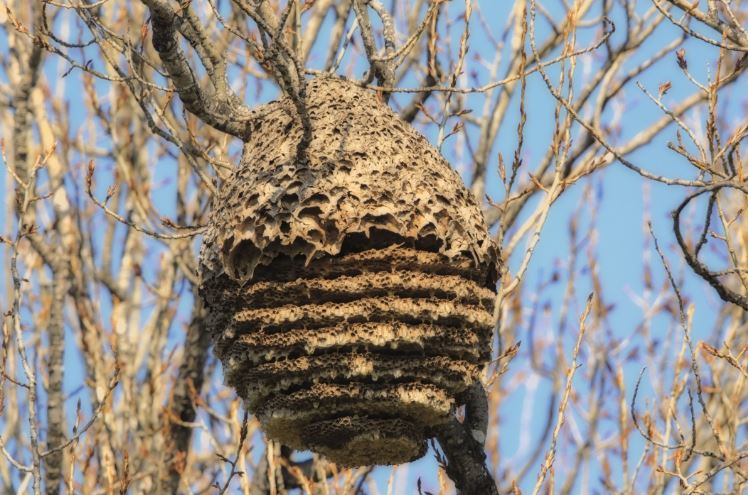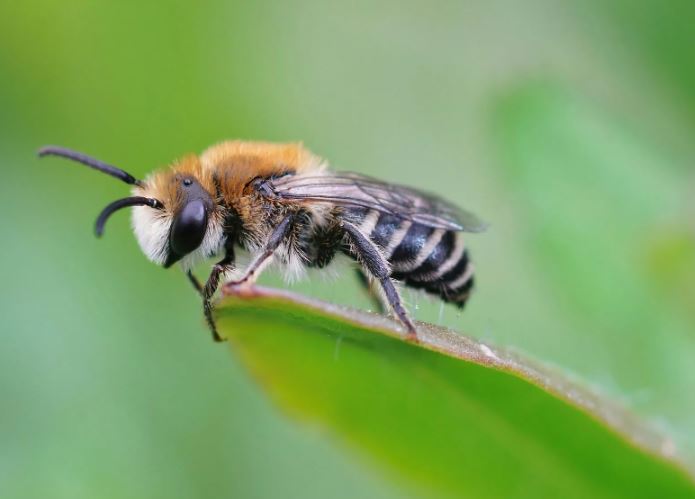Locals were stunned after discovering a large Asian hornet nest in an abandoned house.
A large Asian hornet nest was found nestled within the confines of an abandoned house, leaving locals and scientists deeply concerned.

The Asian hornet, known for its status as an invasive species in various parts of the world, including the UK, has prompted authorities to issue warnings, emphasizing the need for personal safety and preventing the species from further encroachment.
The Asian hornet nest is an invasive species in various parts of the world, including the UK
This year, one of the largest Asian giant hornet nests recorded in the UK was unearthed in St Brelades, Jersey. Measuring approximately 15 inches, the nest is regarded as a "frontline" defense against invasive species, representing the last line of protection against the hornets' potential invasion of other regions in the UK.

Attached to the ceiling of the abandoned house, the nest harbored an estimated 1,500 hornets. Sightings of the Asian hornet have been on the rise, with 171 reported this year, marking a significant increase compared to the same period last year.
As authorities grapple with the challenge, concerns arise that their efforts to prevent the species from spreading across the UK may face obstacles.
The Asian hornet, scientifically known as Vespa velutina nigrithorax, is native to Southeast Asia.
In recent years, it has become an escalating problem in various parts of the world. The species is classified as invasive due to its ability to displace native wasp populations and wreak havoc on ecosystems.
Notably, the hornets prey on bees, posing a substantial threat to bee populations and the crucial pollination services they provide.
Furthermore, the aggressive nature of Asian hornets towards humans raises concerns about encounters and potential stings.

The first entry point for Asian hornets into Europe is believed to be southern France, likely through a hidden nest on a ship. Since then, the species has progressively expanded its territory across Europe, including the British Isles. The Channel Islands, including St. Brelades, are particularly vulnerable to the Asian hornet due to their proximity to mainland Europe.
In light of this discovery, individuals must understand how to effectively handle encounters with Asian hornet nests. These aggressive and dangerous insects can be found in various locations, such as houses, trees, bushes, and even orchards. During winter, they seek warm hiding places wherever available.
The following guidelines should be followed when encountering an Asian hornet's nest:
Firstly, it is essential to observe and report the nest's location to the appropriate local authorities, such as the Veterinary and Phytosanitary Services in the UK.
Attempting to disturb or remove the nest independently is strongly discouraged, as professional expertise and resources are necessary to deal with such situations.

Secondly, maintaining a safe distance from the hive is crucial to avoid provoking the wasps. Asian hornets can exhibit heightened aggression when defending their nests, and their stings can be painful and potentially dangerous, especially for individuals with allergies.
Educating oneself about the characteristics and behavior of Asian hornets is key to understanding the associated risks and minimizing unexpected encounters.
Furthermore, protecting one's property from Asian hornets is essential, particularly if a nest is nearby. Sealing any small cracks or gaps that could serve as entry points for the wasps is recommended to limit their access to residential spaces.
If an Asian giant hornet nest is suspected on one's property, it is advised to seek professional help from a pest control service. These experts possess the necessary skills, knowledge, and equipment to handle the situation safely and effectively, ensuring the well-being of both individuals and the environment.






